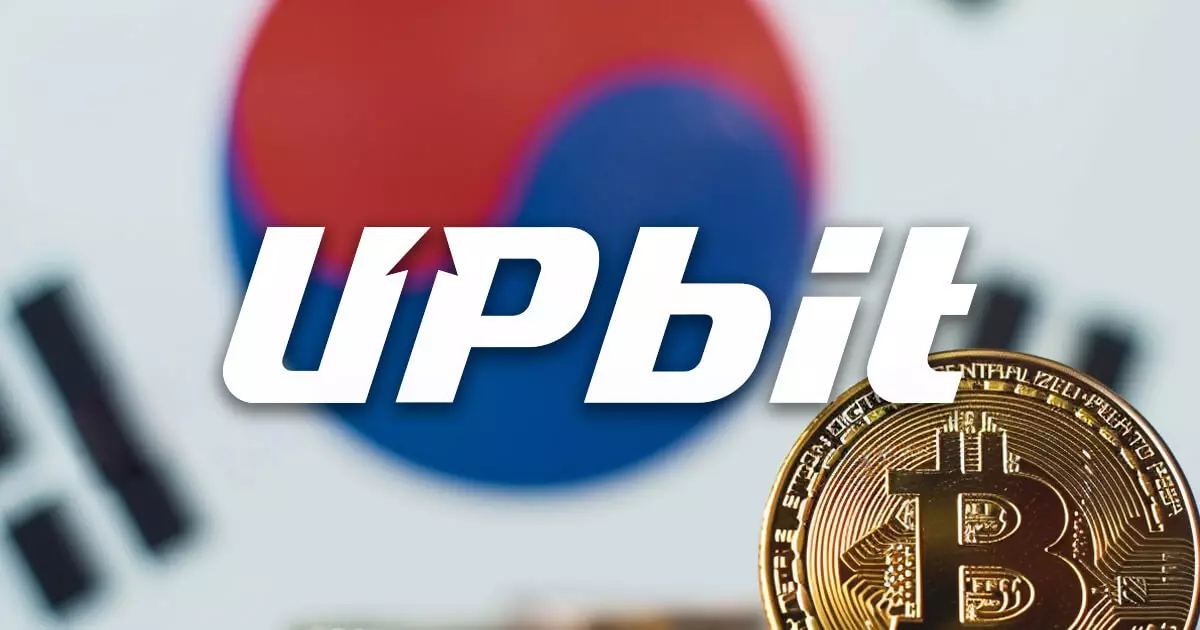In a significant move, South Korea’s Financial Services Commission (FSC) has initiated an investigation into Upbit, the leading cryptocurrency exchange in the country. This scrutiny arises from growing concerns regarding Upbit’s significant market position and its potential influence on the broader financial ecosystem. With Upbit playing a pivotal role in the trading landscape, the FSC’s inquiry signifies a deeper examination of the intertwining relationships between cryptocurrency platforms and traditional banking entities.
The spotlight is particularly on Upbit’s association with K Bank, South Korea’s first internet-only bank, which has garnered attention for its ambitious plans to go public. The relationship between these two financial entities raises red flags, especially in light of recent comments made by lawmaker Lee Kang-il. He revealed that a substantial portion—nearly 20%—of K Bank’s total deposits stems from Upbit, equating to approximately 4 trillion won. This statistic underscores the financial intertwining that could create systemic risks, particularly if Upbit were to face operational disruptions which, according to Kang-il, could potentially trigger a bank run on K Bank.
Critically, the alarm bells are not just ringing for regulators but also for the financial health of K Bank itself. Kang-il expressed his misgivings about the unsustainability of the high-interest rates of 2.1% that K Bank offers on deposits related to Upbit. Given the challenging profit margins traditionally experienced by banks, such rates might raise questions about K Bank’s long-term viability. If K Bank cannot maintain these rates without a stable cash flow from Upbit, it may jeopardize investor confidence during its upcoming IPO, projected to be one of the largest in 2024.
In response to mounting pressures, FSC Chairman Kim Byung-hwan has vowed to conduct a thorough review of K Bank’s listing process, alongside the ongoing investigation into Upbit. Such regulatory actions highlight the fine balance the FSC is attempting to maintain between fostering innovation in the rapidly evolving digital asset domain and ensuring financial stability. These developments come against a backdrop of regulatory caution as the Virtual Asset Committee, which oversees digital assets, prepares to dissect the potential implications of Upbit’s market dominance.
Adding complexity to this scenario is a recent memorandum of understanding (MOU) signed between Dunamu, Upbit’s parent company, K Bank, and BC Card to create a cooperative digital financial services model. This collaboration aims to harness their respective technological strengths, but it also raises questions about the concentration of power and influence in the cryptocurrency sector. While the intention may be to drive growth in South Korea’s digital financial ecosystem, the stakes are high, and the risks warranted careful regulatory consideration.
As the investigation unfolds, it may serve as a bellwether for the regulatory landscape governing cryptocurrency and traditional banking relationships in South Korea. The outcome of this scrutiny could reshape the operational frameworks for both Upbit and K Bank, and by extension, influence the broader Asian cryptocurrency market. With regulators poised to act, stakeholders within the digital asset space must remain vigilant, as the implications of these investigations might not only redefine the operational paradigm of crypto exchanges but also impact investor confidence and market stability.















